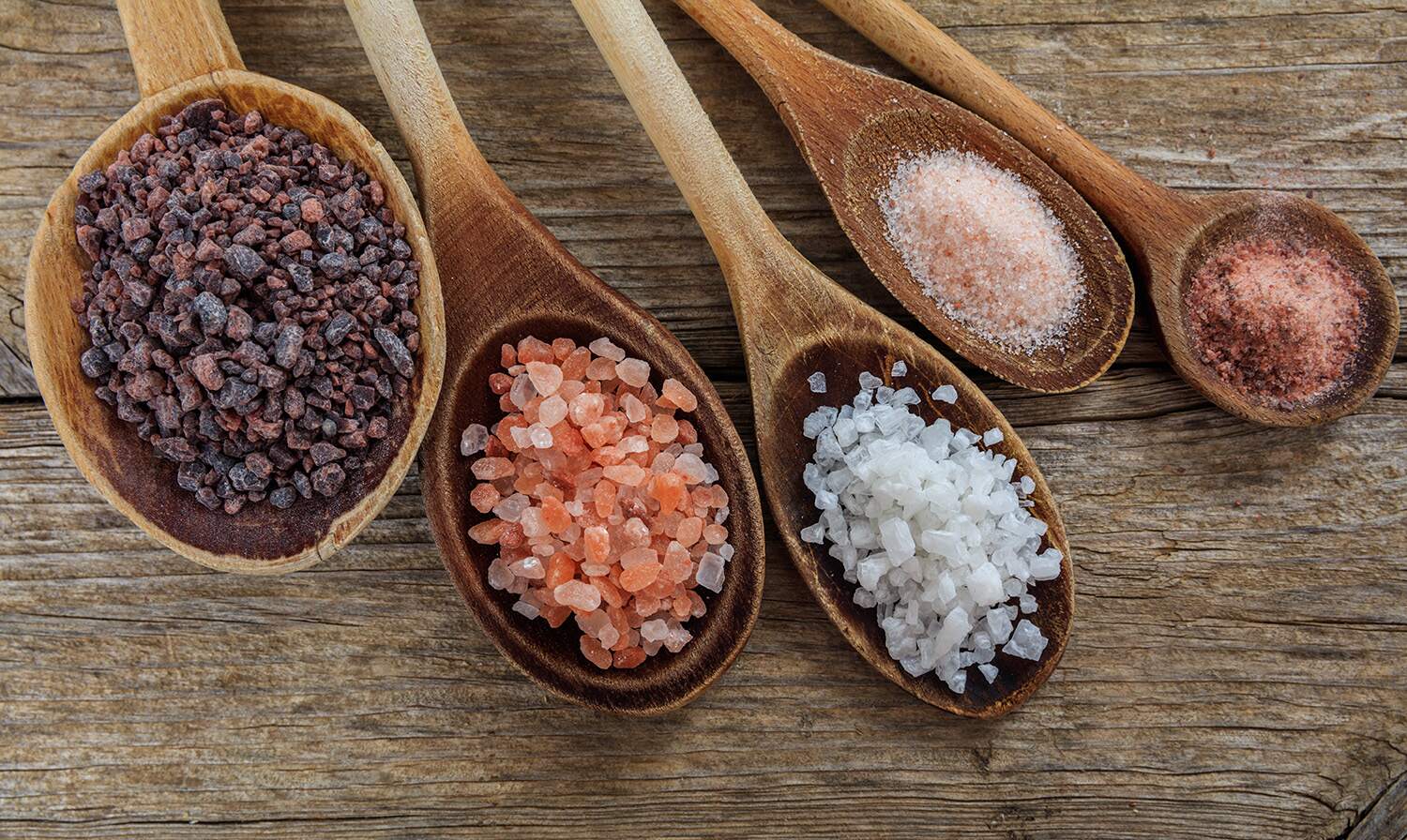
Salt is one of the most basic and essential ingredients in culinary preparations. For most of us, salt is just the usual, finely ground white powder that imparts salty flavor to the preparations. Did you know there are several different types of salt out there? Salt is salt, right? Nope. Several salts, each sourced from various sources, each with a different flavor and unique health benefits, do exist. If you want to know more about these salts, this article is for you. Let's begin with the basics first.
What is salt?
Salt is a mineral substance made up of sodium and chloride ions which is chemically called sodium chloride. This crystalline compound has around 40% of sodium and 60% of chlorine ions, both of which are essential minerals for the proper functioning of our body. But often, you might have heard health experts suggest reducing salt intake as it might harm your health. This is because not all salts are the same. There are various salts, among which few might be healthy while others might not. Let's have a look.
Different types of salts
1. Table salt
This is the refined form of salt that we all commonly use. It's white, is finely ground, and has an anticaking agent added to it. Mostly it's fortified with potassium iodide, and hence it's also known as iodized salt. The natural mineral and trace elements are stripped off during refining, and only the sodium chloride is left-back. Therefore, it's the one with no considerable health benefits.
2. Sea salt
The mineral sea salt made from the southern ocean on the southeast coast of New Zealand is one of the best sea salt as it has more than 80 trace elements and essential minerals in it. It's made from evaporating seawater, rich in sodium chloride and has tons of other natural minerals and trace elements. The flavor, quality, and texture depend on the seawater it's made from. New Zealand's sea salts are often sun or wind-dried, which helps preserve all the natural minerals.
3. Himalayan pink salt
These are mined from the Khewra salt mines in the Himalayas in Pakistan. It has the presence of more than 80 trace minerals in it. Due to lots of minerals, it has a pronounced flavor and therapeutic properties.
4. Himalayan black salt
Here, the Himalayan salt is packed in a container with some herbs, spices, and charcoal, then kept in a hot furnace for 24 hours. This process imparts its strong flavor, reddish black color, and pungent sulfurous taste.
5. Kosher salt
This salt, mined from natural salt deposits, has more extensive and coarser grains than table salt and thus is better than table salt for seasoning meats and other dishes. It is not iodized, has no presence of other minerals, and solely contains sodium chloride only. It is better than table salt for cooking meat.
6. Celtic grey sea salt
Celtic sea salt is sourced from the bottom of tidal pools off the French coast. It's best for seafood dishes. Celtic salt has damp, chunky grains with a grey hue and a saline taste, thanks to the mineral-rich seawater it's extracted from.
7. Fleur de sel
This mineral sea salt is carefully hand-harvested from the seawater on the coast of Brittany in France. The harvesting is only possible when the climate is sunny and a bit breezy, which enables the formation of thin salt layers on the water surface. It's labor-intensive and thus very expensive.
8. Red Hawaiian salt
This salt is sourced from the volcanic clay known as alaea in Hawaii. It has a robust flavor and is reddish due to the abundance of iron.
9. Black Hawaiian salt
Also known as lava salt, black Hawaiian salt is sourced from the volcanic island of Hawaii. It has a coarse texture and black color due to activated charcoal. It has a unique smoky flavor and lots of minerals.
Do sea salts have health benefits?
As you can see above, naturally occurring salts have appreciable concentrations of trace elements and minerals, which provides some health benefits. Adequate consumption of natural salts can have the following benefits.
- Due to its sodium content, mineral sea salt can maintain your electrolyte and fluid balance. This, in turn, helps you regulate blood pressure and heartbeats if consumed appropriately.
- Natural salts are natural antihistamines that might help clear sinuses and relieve lung and nasal congestion.
- New Zealand's sea salt, rich in minerals, enhances the production of salivary amylase and hydrochloric acid in our body which helps to promote digestion. It also enables effective vitamin absorption post digestion.
- The essential trace minerals like zinc, iodine, potassium, magnesium, manganese, phosphorus, iron, etc., help enhance immunity.
- Unrefined, natural salt has an alkalizing effect inside our body, which helps to reduce inflammation and fight infections.
- Studies show that natural sea salt is beneficial for patients with blood pressure as it is less likely to raise your blood pressure unnecessarily when compared to table salt.
- Externally, the exfoliating and anti-inflammatory properties of natural salts might help to rejuvenate your skin.
- New Zealand's sea salt has anti-inflammatory properties owing to its abundance of natural trace elements. This might help reduce the swelling and pain caused by inflammatory conditions like arthritis.
There we are! I hope it was helpful. Any questions? Let's know in the comments!




